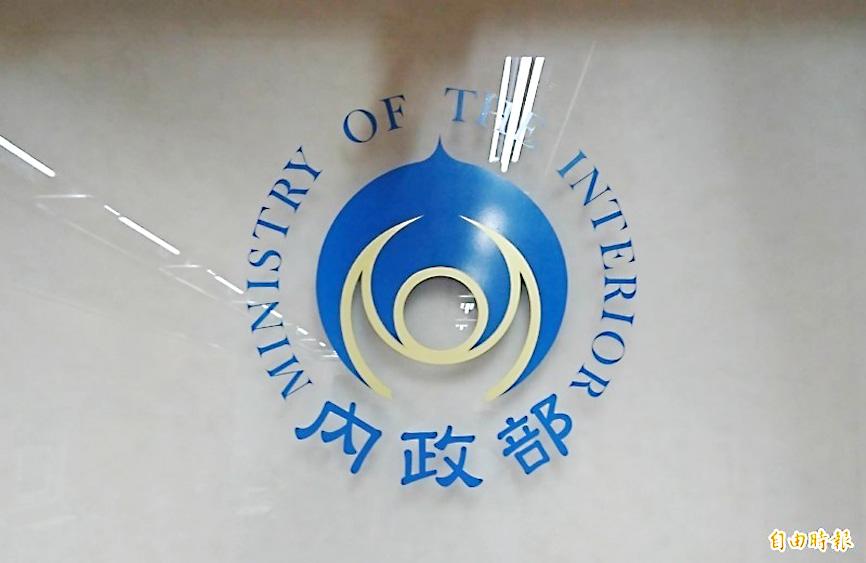Political parties delinquent in filing documents mandated under the Political Parties Act (政黨法) have had their registration information removed from the Ministry of the Interior’s records.
Dissolved on Tuesday, the 171 political parties — including the Trees Party, the Faith and Hope League, and the Zhonghua Social Democratic Party — began yesterday to receive notification of their disbandment.
The abolished parties should designate one official to supervise their liquidation and submit a clear accounting of all cash transactions and assets under their name to the ministry, it said.

Photo: Huang Hsin-po, Taipei Times
The ministry added that it would appoint an official for parties unable to agree on one.
The officials supervising the liquidation must present themselves to the ministry within 15 days of receiving the notice of their disbandment, the ministry said.
Parties originally registered under the Civil Associations Act (人民團體法) were told after the Political Parties Act was passed that they would need to change their charter and articles of association to comply with the new act by Dec. 7 last year or their party would be disbanded.
The 230 parties that had still not complied as of Dec. 24 last year were given a four-month grace period.
By the end of the grace period on Friday last week, 203 parties had still not presented the necessary documents, the ministry said.
However, 16 parties on Sunday submitted photocopies of juristic person registrations and the ministry recognized their validity, it said.
The ministry, after verifying with the Judicial Yuan’s Asset Registration Platform for Juristic Persons and Married Couples, also agreed to process an additional 16 parties who had completed the juristic person registration process, but had yet to submit the documents.
Forty-two political groups — including the National Women’s League — failed to submit the documents needed to become a political party, so they were also dissolved on Tuesday, the ministry added.
Parties whose registration has been dissolved must stop all activity under their name, it said, reminding people not to make donations to disbanded parties or attend their events.

POSITIVE DEVELOPMENT: Japan and the US are expected to hold in-depth discussions on Taiwan-related issues during the meeting next month, Japanese sources said The holding of a Japan-US leaders’ meeting ahead of US President Donald Trump’s visit to China is positive news for Taiwan, former Japan-Taiwan Exchange Association representative Hiroyasu Izumi said yesterday. After the Liberal Democratic Party’s landslide victory in Japan’s House of Representatives election, Japanese Prime Minister Sanae Takaichi is scheduled to visit the US next month, where she is to meet with Trump ahead of the US president’s planned visit to China from March 31 to April 2 for a meeting with Chinese President Xi Jinping (習近平). Japan and the US are expected to hold in-depth discussions on Taiwan-related issues during the

‘LIKE-MINDED PARTNER’: Tako van Popta said it would be inappropriate to delay signing the deal with Taiwan because of China, adding he would promote the issue Canadian senators have stressed Taiwan’s importance for international trade and expressed enthusiasm for ensuring the Taiwan-Canada trade cooperation framework agreement is implemented this year. Representative to Canada Harry Tseng (曾厚仁) in an interview with the Central News Agency (CNA) said he was increasingly uneasy about Ottawa’s delays in signing the agreement, especially as Ottawa has warmed toward Beijing. There are “no negotiations left. Not only [is it] initialed, we have three versions of the text ready: English, French and Mandarin,” Tseng said. “That tells you how close we are to the final signature.” Tseng said that he hoped Canadian Prime Minister Mark Carney

President William Lai (賴清德) yesterday bestowed one of Taiwan’s highest honors on Saint Vincent and the Grenadines (SVG) Ambassador Andrea Clare Bowman in recognition of her contributions to bilateral ties. “By conferring the Order of Brilliant Star with Grand Cordon on Ambassador Bowman today, I want to sincerely thank her, on behalf of the Taiwanese people, for her outstanding contribution to deepening diplomatic ties between Taiwan and SVG,” Lai said at a ceremony held at the Presidential Office in Taipei. He noted that Bowman became SVG’s first ambassador to Taiwan in 2019 and

A man walks past elementary school artworks at the Taipei Lantern Festival in Ximen District yesterday, the first day of the event. The festival is to run from 5pm to 10pm through March 15.